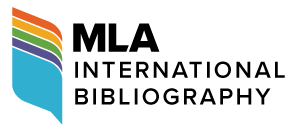Writing Against the Grain: Postmodernist Approaches to Die, My Love, Feebleminded, and Tender by Ariana Harwicz
DOI:
https://doi.org/10.36798/critlit.i30.530Keywords:
Contemporary Latin American narrative, Argentine literature, dissident motherhood, desacralizationAbstract
This essay explores the lingering presence of postmodernist aesthetics in contemporary literature, specifically through the works of Argentine author Ariana Harwicz. Despite the apparent decline in theoretical discussions on postmodernism, the cultural and literary echoes of postmodernist thought remain evident. The analysis focuses on Harwicz's Trilogía de la pasión, comprising Die, My Love (2012), Feebleminded (2014), and Tender (2015), which collectively critique and deconstruct societal pillars such as family and motherhood. These novels embody the postmodernist spirit through their fragmented narratives, exploration of dislocation, and subversion of binary oppositions like sanity and madness, rationality and irrationality. Harwicz's narratives challenge the hegemonic metanarratives that have historically shaped Western cultural norms, particularly the idealized concept of motherhood. By highlighting the dissident maternal experiences of her protagonists, Harwicz exposes the constructed nature of reality and the marginalization of alternative perspectives. The essay argues that, far from being a relic of the past, postmodernism continues to offer a dynamic framework for understanding contemporary literature. It remains relevant in its resistance to categorization, its challenge to accepted truths, and its exploration of the complexities of identity, making it a vital lens through which to examine the ongoing evolution of cultural and literary production.
Downloads
References
Baudrillard, Jean. El complot del arte. Ilusión y desilusión estética. Amorrortu, 2006.
____. Cultura y simulacro. Nirvana Libros, 2002.
Bauman, Zygmunt. Modernidad y ambivalencia. Anthropos, 2005.
Best, Steven, y Douglas Kellner. Postmodern Theory: Critical Interrogations. Macmillan, 1991.
Borrat, David. “Ariana Harwicz sobre Matate, amor, la ‘novela maldita’ que Scorsese llevará al cine”. Infobae, 23 Mar. 2023, https://www.infobae.com/cultura/2023/03/23/ariana-harwicz-sobre-matate-amor-la-novela-maldita-que-scorsese-llevara-al-cine/.
Castle, Gregory. The literary theory handbook. Blackwell Literature Handbooks, 2013.
Domínguez, Christopher. “Degenerado y Trilogía de la pasión de Ariana Harwicz. Entre Camus y Scorsese”. Revista de la Universidad de México, no. 894, mar. 2023, pp. 140-143.
Eagleton, Terry. Una introducción a la teoría literaria. Fondo de Cultura Económica, 2002.
Harwicz, Ariana. “Conversaciones –– Ariana Harwicz”. YouTube, publicado por Museo Malba, 29 jul. 2019, https://www.youtube.com/watch?v=Bjf7SMF9PD8.
______. La débil mental. Dharma Books, 2022.
______. Matate, amor. Dharma Books, 2022.
______. Precoz. Rata, 2016.
______. Trilogía de la pasión. Anagrama, 2022.
Imbert, Gérard. Cine e imaginarios sociales. Cátedra, 2010.
Liendo, Victoria. “Entrevista a Ariana Harwicz”. Revista Seúl, 26 may. 2024, https://seul.ar/ariana-harwicz/.
Lyotard, Jean-François. La condición postmoderna. Cátedra, 1994.
Marzano, Michela. La muerte como espectáculo. Tusquets, 2013.
Downloads
Published
How to Cite
Issue
Section
License
The authors always maintain the moral and patrimonial rights of their work. They only grant the non-exclusive license of use to Connotas for their first publication. Therefore, the authors may make other independent and additional contractual agreements for the publication of their article, review or other text originally published in Connotas or with modifications (including the title) as long as they clearly indicate that the paper was first published in Connotas. Revista de crítica y teoría literarias. Connotas undertakes not to make commercial use of the texts it receives or publishes.
See also "Copyright and Licences".





